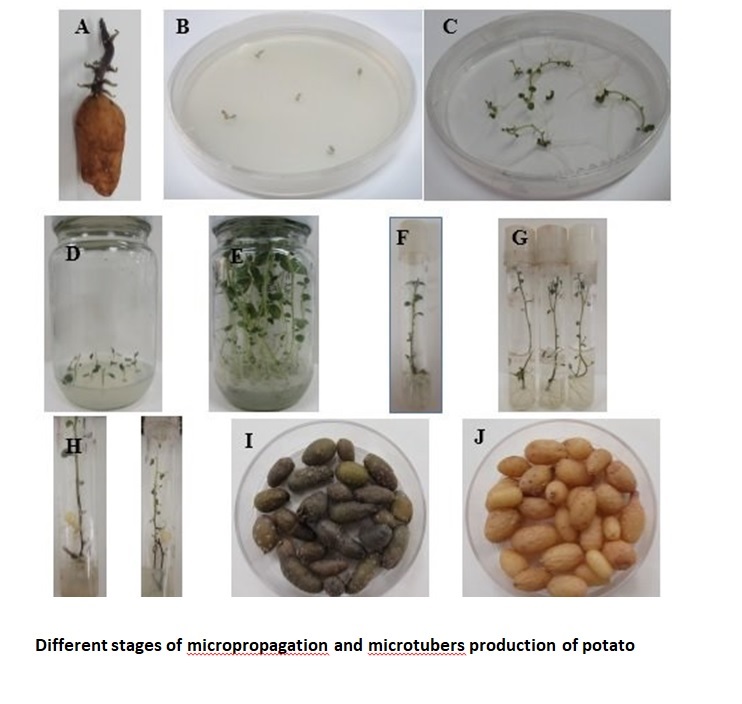In vitro propagation and microtuberization of potato (Solanum tuberosum L.) Spunta variety in Lebanon

Published 2023-11-22
Keywords
- In vitro culture,
- microtubers,
- shootlets proliferation,
- Solanum tuberosum L,
- Spunta
How to Cite
Copyright (c) 2023 Ahmad Elbitar, Maya Dalleh, Jamilah Borjac, Ghassan Younes, Elia Choueiri, Ali Chehade

This work is licensed under a Creative Commons Attribution 4.0 International License.
Abstract
One of the factors that causes low productivity of potatoes in Lebanon is the limited availability of certified seeds. The aim of this study was to establish a rapid protocol for in vitro propagation and microtuberization of potato (Solanum tuberosum L.) of Spunta variety. Meristems culture associated to thermotherapy (one month/37°C) constituted the first step. The highest percentage of reactive meristem (92%) was observed on MS medium devoid of growth regulators while MS medium containing Kin 0.4 mg.l-1, GA3 0.5 mg.l-1 and IBA 0.5 mg.l-1 yielded the highest average number of shootlets (7.8) in the seventh subculture. The lowest number of days obtained for microtuber formation was 10 and the highest average number of microtuber (1.49) was obtained with shootlets incubated under C2 culture conditions (16-h day/8-h night for initial 7 days at 25±2°C; for remaining period: continuous dark at 17±2°C). Contrary the highest microtubers average length (10.75 mm), average width (7.41 mm) and average weight (646.26 mg) were produced under C1 culture conditions (16-h day/8-h night at 25±2°C). Medium supplemented with 5 mg.l-1 BAP and 6% sucrose presented the highest average number of microtubers of 2.36 and 1.94 respectively. Type and concentration of cytokines and sucrose concentration did not have significant effect on the average length, width and weight of microtubers produced.




